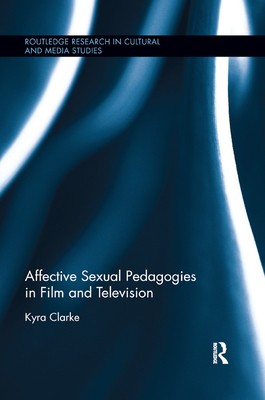
- We will send in 10–14 business days.
- Author: Kyra Clarke
- Publisher: Routledge
- ISBN-10: 0367875780
- ISBN-13: 9780367875787
- Format: 15.2 x 22.9 x 1.5 cm, softcover
- Language: English
- SAVE -10% with code: EXTRA
Reviews
Description
Popular film and television hold valuable potential for learning about sex and sexuality beyond the information-based model of sex education currently in schools. This book argues that the representation of complicated-or "messy"-relationships in these popular cultural forms makes them potent as affective pedagogical moments. It endeavours to develop new sexual literacies by contemplating how pedagogical moments, that is, fleeting moments which disrupt expectations or create discomfort, might enrich the available discourses of sexuality and gender, especially those available to adolescents. In Part One, Clarke critiques the heteronormative discourses of sex education that produce youth in particularly gendered ways, noting that "rationality" is often expected to govern experiences that are embodied and arguably inherently incoherent. Part Two explores public intimacy, contemplating the often overlapping and confused boundaries between public and private.
EXTRA 10 % discount with code: EXTRA
The promotion ends in 20d.15:34:28
The discount code is valid when purchasing from 10 €. Discounts do not stack.
- Author: Kyra Clarke
- Publisher: Routledge
- ISBN-10: 0367875780
- ISBN-13: 9780367875787
- Format: 15.2 x 22.9 x 1.5 cm, softcover
- Language: English English
Popular film and television hold valuable potential for learning about sex and sexuality beyond the information-based model of sex education currently in schools. This book argues that the representation of complicated-or "messy"-relationships in these popular cultural forms makes them potent as affective pedagogical moments. It endeavours to develop new sexual literacies by contemplating how pedagogical moments, that is, fleeting moments which disrupt expectations or create discomfort, might enrich the available discourses of sexuality and gender, especially those available to adolescents. In Part One, Clarke critiques the heteronormative discourses of sex education that produce youth in particularly gendered ways, noting that "rationality" is often expected to govern experiences that are embodied and arguably inherently incoherent. Part Two explores public intimacy, contemplating the often overlapping and confused boundaries between public and private.


Reviews